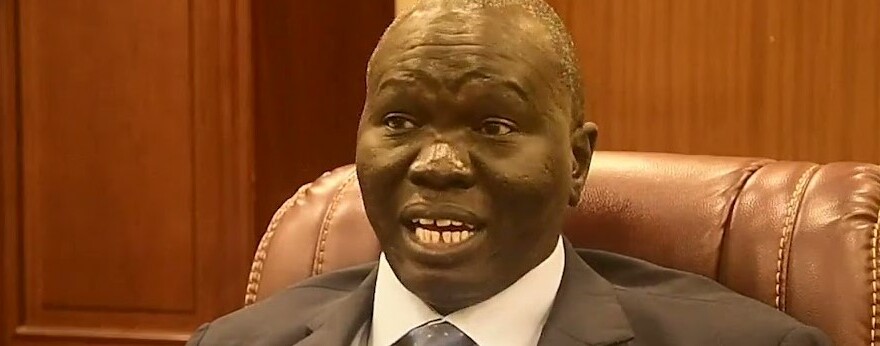South Sudan’s Deputy Minister of Finance Agok Makur Kur has revealed that 19 revenue-generating public institutions do not remit their incomes to the ministry and the central bank, saying this is contributing to the economic crisis that has been driven by the rapidly depreciating value of the South Sudanese Pound.
Speaking during an economic forum organized by the South Sudan Radio and Television Corporation in Juba on Thursday, Deputy Minister Makur said several private companies also evade taxes.
“I want to be transparent: there are about 19 ministries and agencies that are generating revenue, but they don’t remit the revenues as required by the ministry of finance, which is mandated to manage the public resources,” he said.
The Deputy Minister admitted that non-compliance of the unnamed companies and public institutions with the tax policy presents a major challenge to the country’s efforts to grow its economy.
“This exacerbates the economic crisis in the country and contributes to the rise in prices of commodities in the markets. The commodities prices in South Sudan are unbearable, and our South Sudanese Pound is depreciating rapidly because we don’t have enough reserve,” he said.
The deputy minister, who is a senior member of the opposition SPLM-IO led by First Vice President Riek Machar, did not mention any step to hold those public institutions and private firms accountable.
For example, the South Sudan Revenue Authority (SSRA) is mandated by law to reduce dependency on oil revenues and strengthen the non-oil revenue sector.
Makur, however, said the way out of the economic crisis lies in agriculture because the land of South Sudan is fertile and suitable for agriculture. “Let us develop the industrial sector to reduce imports of goods,” he said.
Makur called on the Council of Ministers to find solutions to the economic crisis, stressing that President Salva Kiir is now working to resolve the conflict in Sudan. He said the Sudanese conflict directly affects South Sudan.
“The war in Sudan has an impact on the economic situation in the country because South Sudan’s oil passes through Sudanese territory. Foreigners working in oil companies in South Sudan are afraid of the ongoing war in Sudan,” he said.
Ghada James Kela, Chairperson of the Parliamentary Committee for Agriculture and Food Security, attributed the lack of special laws on agriculture to the decline in agricultural production.
“If you go to the market in Juba, you will find vegetables and fruits, most of which come from abroad, and this is considered a security problem in South Sudan,” she said.
Ghada added, “If you go to Renk in Northern Upper Nile State, you can grow thousands of acres of grain. Tea can also be grown in Yei River County in Central Equatoria State.”




